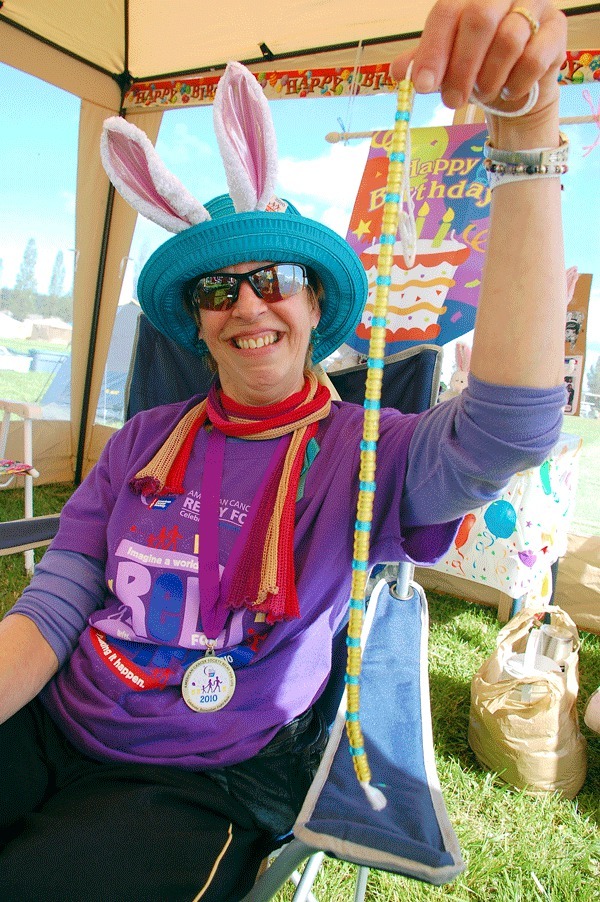Three years ago, Oak Harbor resident Ginny Walters got just about the worst news a person can get.
A doctor diagnosed the lower abdominal pains she was feeling as ovarian cancer. While not as common as breast cancer, the disease is no less deadly. In 2009, it claimed about 14,600 lives, according to the National Cancer Institute’s website. Although Walters, 56, has been cancer free for some time, she will never forget getting the news.
“It hits you like a ton of bricks,” Walters said. “It’s life altering.”
Cancer is devastating for the whole family but until you have been diagnosed yourself, you can’t understand what it’s like to face such a disease, Walters said. Take chemotherapy for example. Walters had shaved her head in the past but actually losing her hair due to radiation treatment was an unforgettable indignity.
“It was horrible,” she said. “I’m sorry but if you haven’t walked in our shoes, you’re clueless.”
That sense of isolation is one of the things that makes the annual North Whidbey Relay for Life so powerful. For about 24 hours, you’re surrounded by people who understand what you’ve been through. They know what it feels like to lose their hair and wonder if they will still be here the same time next year. You can’t put a price on that kind of camaraderie, she said.
According to event coordinator Karla Sharkey, the 2010 relay, held at North Whidbey Middle School, was a great success with about 1,800 people participating on 118 teams. That includes about 200 cancer survivors. While no concrete numbers were gathered, Sharkey said the average number of miles walked was estimated at about 20 miles per person. At 1,800 people, that total’s 36,000 miles.
The event was also a financial success with a total of $192,970 raised, $10,970 more than the $182,000 goal. That’s also $15,470 more than the $177,500 raised in 2009.
“I thought it was a marvelous event that the community once again came together and supported,” Sharkey said.
The financial success of this year’s event can be chalked up partly to several new and unique fundraisers, Sharkey said. One, orchestrated by the Oak Harbor Middle School team, revolved around the sale of 250 “Buzz Off Cancer” buttons at $5 apiece. The effort resulted in four teachers and school administrators having their heads publicly shaved and about $6,400 for the relay. Sharkey said several garage sales also brought in big contributions with some as high as $1,000.
This year’s relay was the 25th to take place in Oak Harbor since the event was created in Tacoma in 1985 when Dr. Gordy Klatt walked around a track for 24 hours to raise money for the American Cancer Society.
According to its website, Relay for Life has become a global phenomenon with more than 3.5 million people in 5,000 communities in 19 countries participating. The proceeds for all the events go towards patient services, education, and research.
But for Walters, who walked a total of 21 miles, the event isn’t just about raising money. It’s about education and about coming together. Learning to listen to your body can lead to the early identification of cancer and through unity and common understanding comes healing.
“This is therapy for us,” Walters said.



